The first person we met in Brazil was at the tourist information office in Foz du Iguaçu. She took one look at Capi and, with tears in her eyes, told us that she had just put her old sick dog to sleep. We were instant friends. She directed us to the campground outside of town where we spent two pleasant nights watching fruit fall off trees.
At last, after getting the truck a much needed wash at a truck wash, we headed off in search of the Pantanel.
As the day progressed, we weren’t able to find a campsite or hotel, but some friendly police directed us down a road about 30 miles to a small town on a river. Near the intersection with the main highway we saw many campers in makeshift tarpaulin shelter, presumably migrant workers. We didn’t see poverty in Argentina, but the people of Brazil are not so well off. The drive was spectacular. The world’s largest dam is near Iguaçu Falls, and the water and rivers are backed up for miles creating wetlands.
The next morning on our way back out to the main highway, we were stopped by a line-up of trucks and cars, and could see people gathered up the road.
The Canadian Department of Foreign Affairs publishes travel advisories for Canadians. They warn us about protests and demonstrations and the need to stay away from them. Bill walked up the road with Capi and determined that the road was blocked with tree branches and a group of people protesting working conditions.
It wasn’t the loud, angry scene that leads to violence, but there were lots of disgruntled people.The protester’s kids instantly made friends with Capi, and Bill was told that they would allow us, as Canadian tourists, to go through. As we moved the truck up to the blockade some other drivers tried to drive through ahead of us. They were stopped, so we were stopped right beside the protesters. The Canadian government doesn’t know the power a small red dog and a bunch of kids have to diffuse a situation.
The kids gave us crackers; we gave them pens and paper. People asked us about our trip. After a couple of hours, we were all allowed through.
That evening we got on the internet long enough to determine that the road we planned to take from Rio de Janeiro to Lima has not been completed. Although it has been publicized as joining the east and west coast, a small section in Brazil near Peru has yet to be built. We had to change plans and decided to go west through Bolivia. At the same time, we received an odd email saying the ferry between Colombia and Panama was taking vehicles on Feb 3rd and 4th, but no other vehicle sailings are planned. We had made a reservation for the ferry for early March. We are anticipating a vehicle sailing in March, but we may be overly optimistic. We have no idea how we will get the truck across the Darien Gap if the ferry doesn’t run. Container? RoRo? From where to where?
We set a new route through the Pantanel, taking a byway.
The Lonely Planet guidebook suggests that the Amazon is a great place to see vegetation, and the Pantanel is a great place to see wildlife. We found a campsite and hostel close to a river on a large farm that has wild peccaries, caimans, foxes, coatimundi and parrots living alongside horses and cattle. This campsite offers eco-tours, horseback riding and piranha fishing.
We kept Capi on a leash to keep her away from the river. She didn’t understand about the caimans.
The next day she had the opportunity to meet some caimans from the safety of the truck. They really do have the most amazing sardonic grins, and hungry looking eyes. They were all sitting in the sun, with their mouths open, smiling. We saw hundreds of them.
We saw fantastic birds whose names we don’t know, that are familiar from pictures. Our pictures are not good enough to show. The air was filled with bird calls, the shriek and drone of insects, ribbets of frogs and the roar of howler monkeys. It was hot and humid yet dusty. We drove for hours, stopping and watching.
Our route took us through Porto Manga. We were stopped in our tracks, literally, when the road ended at a river.
We myopically realized that there was a ferry on the other side, a glorified landing craft. A neighbourly woman told us they would come across if we honked our horn. They didn’t, but as luck would have it, a car and a truck pulled up on the other side and were loaded on to the ferry and brought across. Ours was the only vehicle on the return trip.
Our new route home is taking us through Bolivia. On the Brazilian side of the border as we drove out of the Pantanel, we saw a sign for an “aero club”. We stopped and met the proprietor who is an aircraft mechanic, and his family. After a quick tour of the airstrip and planes, we headed to the Bolivian border.
There is drug smuggling here, so we expected that the border security would be tight. We went through immigration to exit Brazil, and found our way, after a few attempts, to the Bolivian immigration, and entered Bolivia. Unfortunately, our paperwork for Capi was not sufficient: she needed to have a health certificate from a Brazilian vet. As it was a Sunday, the Bolivian inspectors suggested that we wait and go back into Brazil on Monday when the vets would be open. The Bolivian immigration agreed, so, with an uninspected dog and without going through customs, we spent the night in a Bolivian hotel.
The next day we drove back into Brazil, without clearing immigration or customs and got the paperwork from a vet. We drove back into Bolivia and waited for customs.
The temperature was over 90 degrees. The single customs officer works out of a container office. He was hours late but we eventually got all the papers for the truck. He didn’t look at the truck. The food and agriculture inspectors never showed up, so, clutching our Brazilian health certificate, we drove on.


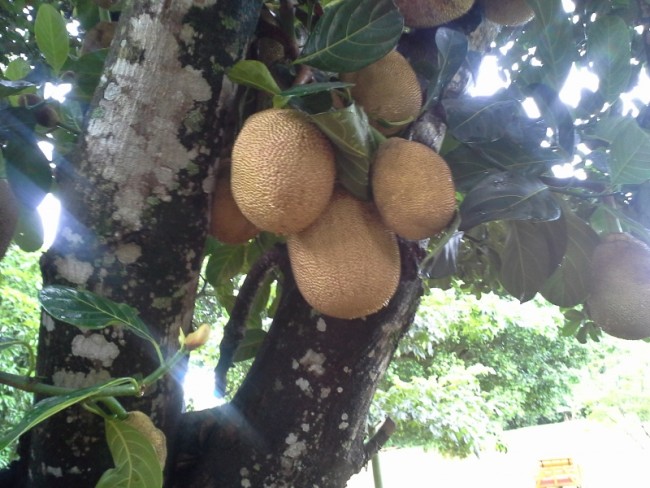
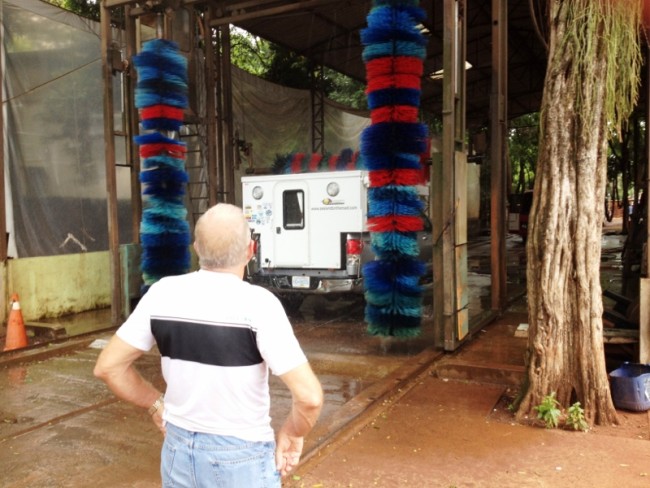
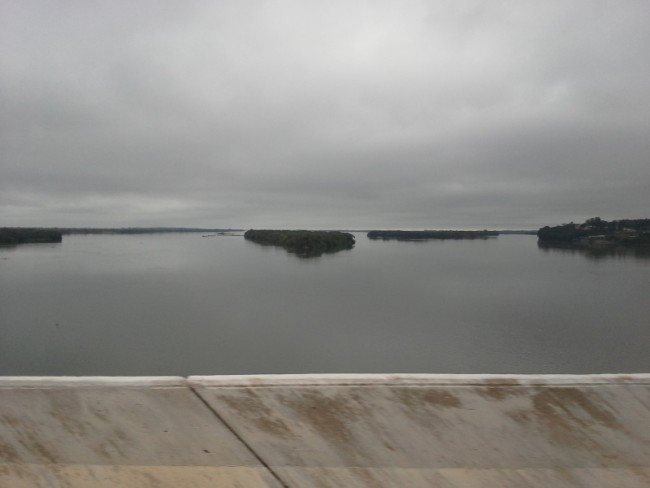
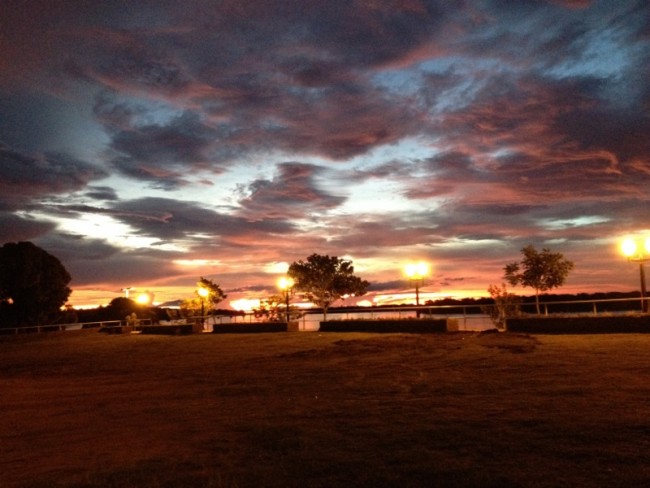
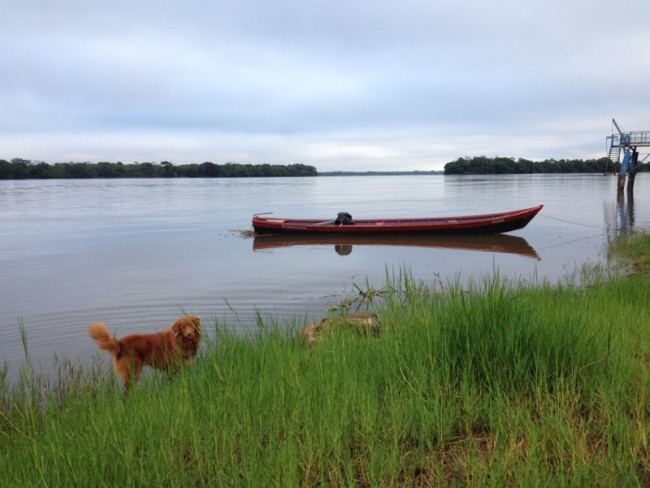
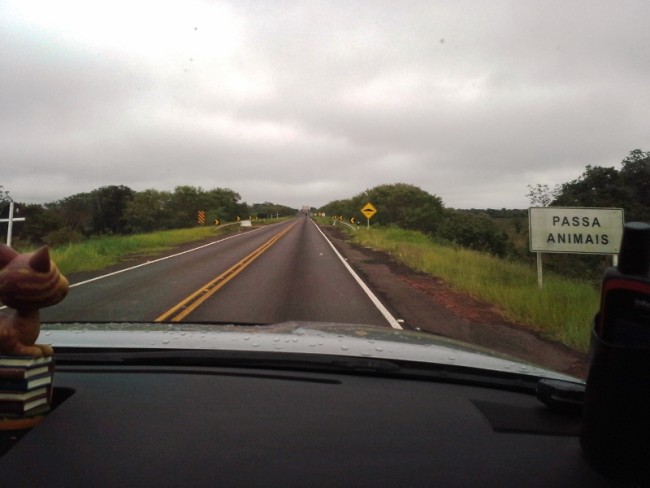
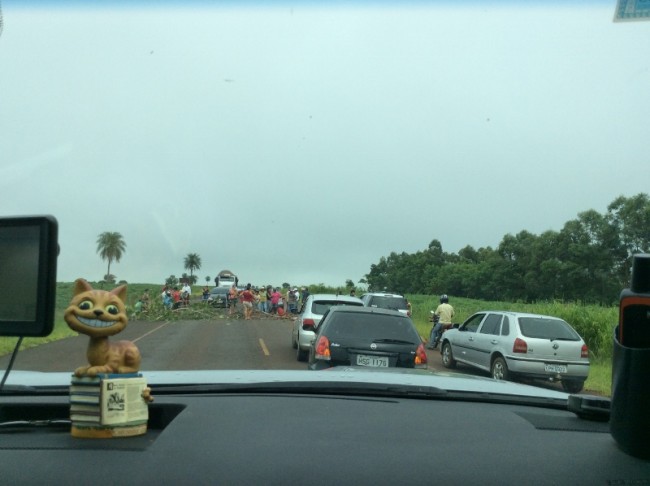
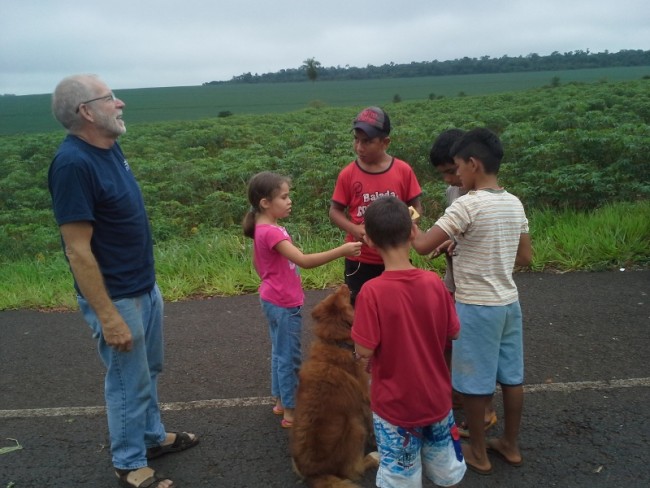
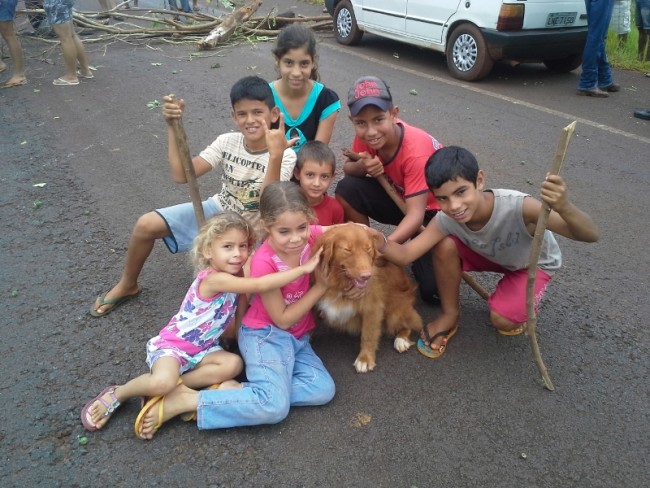
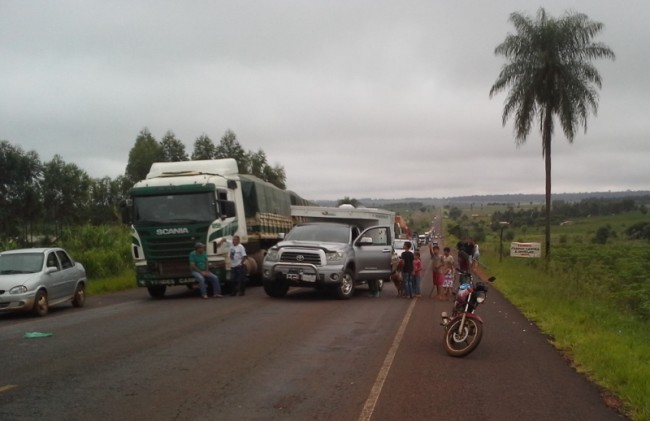
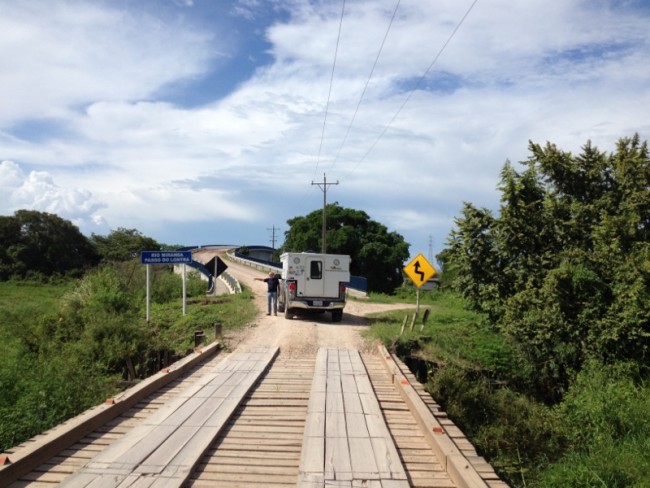
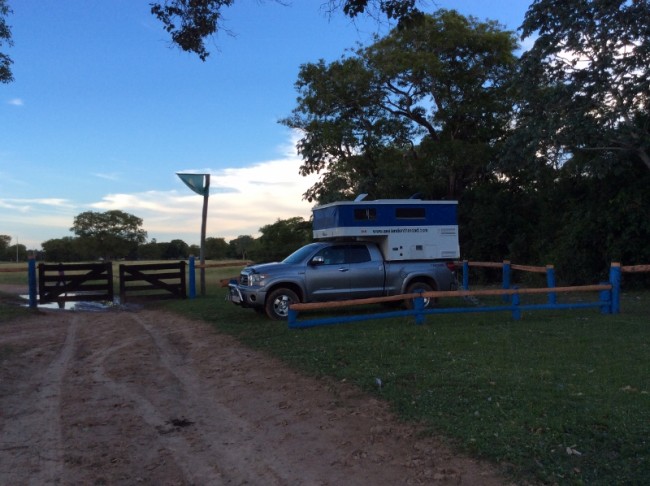
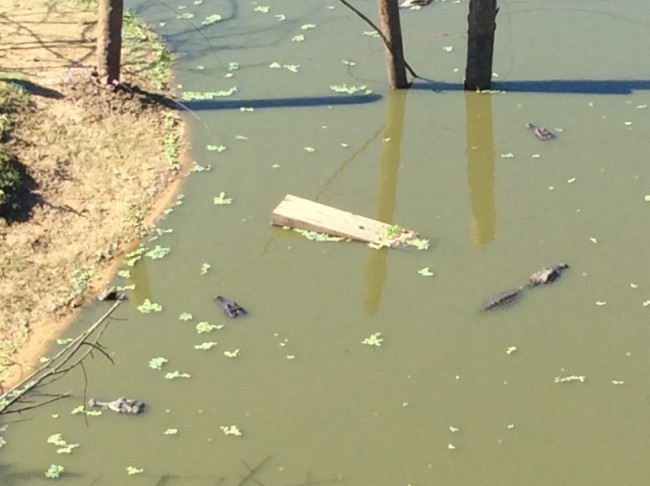
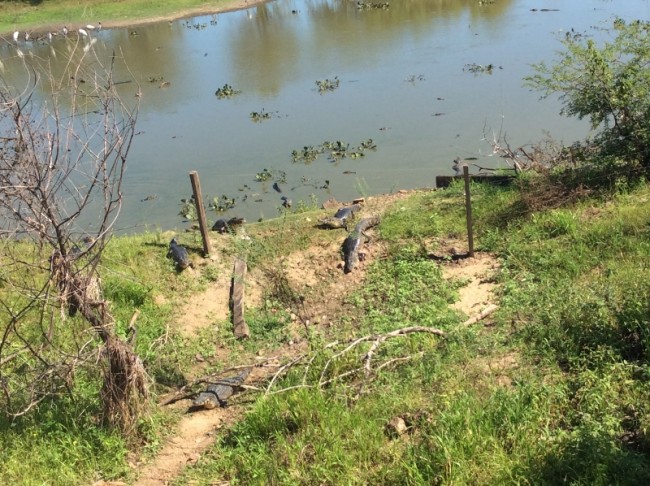

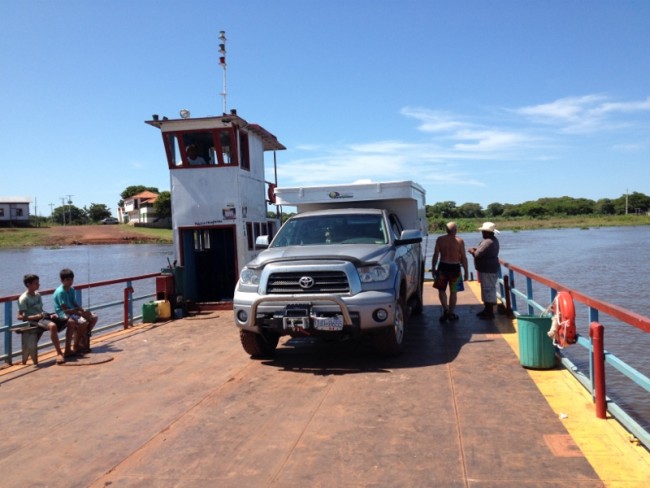
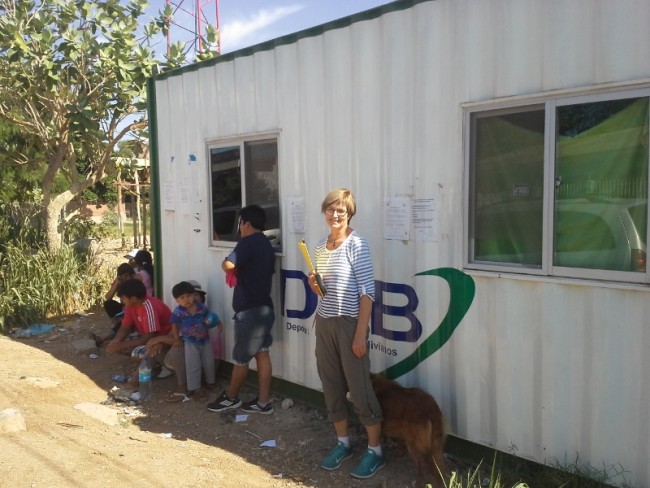
Your pictures are beautiful. It looks like you are having great weather. It is warm here in Campbell River but just had a few days of lots of rain. Have you had a chance to experience any music along your travels? What has the the food been like? Stay safe and thinking of you both.
Chrystal and Brenda